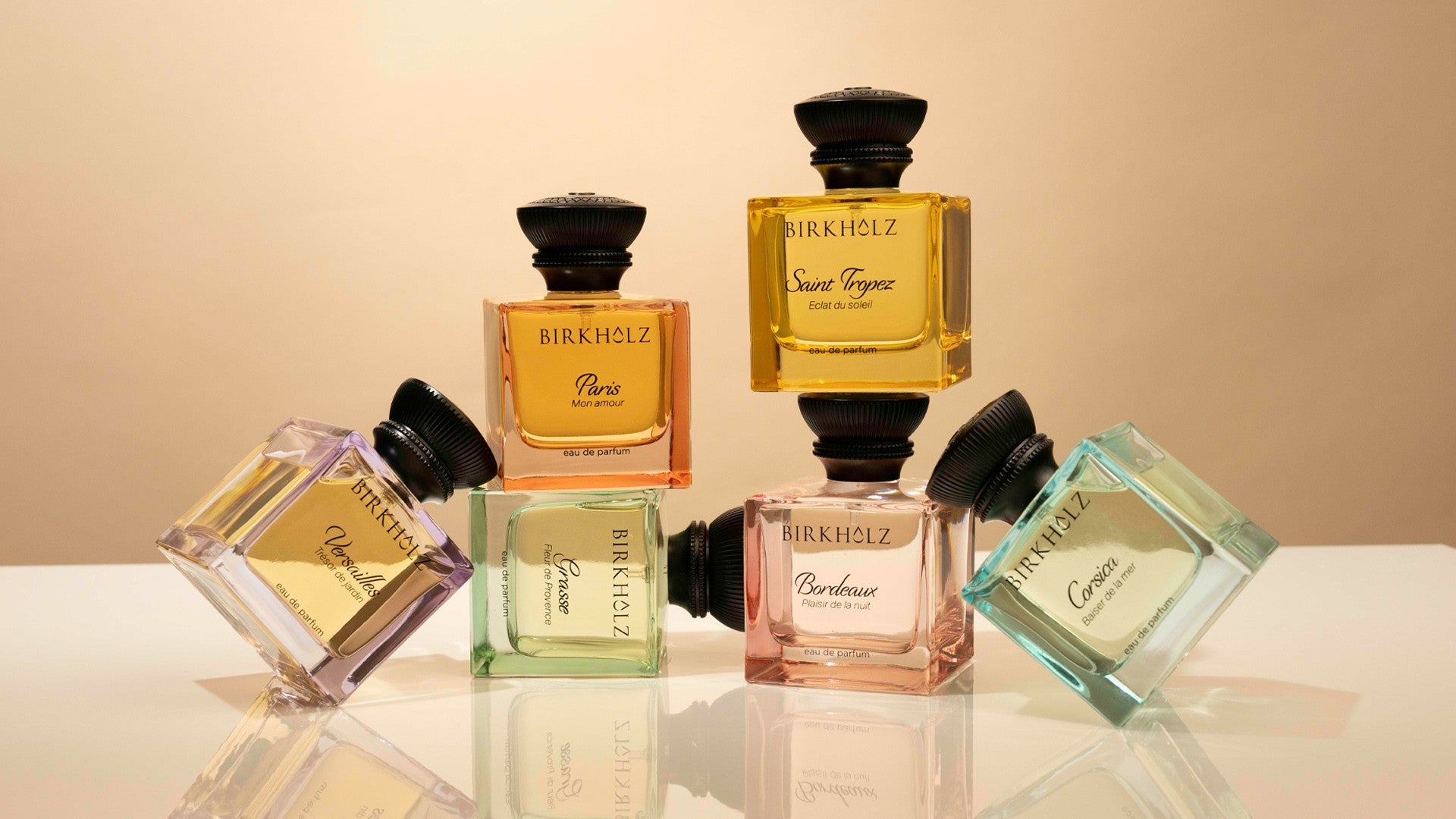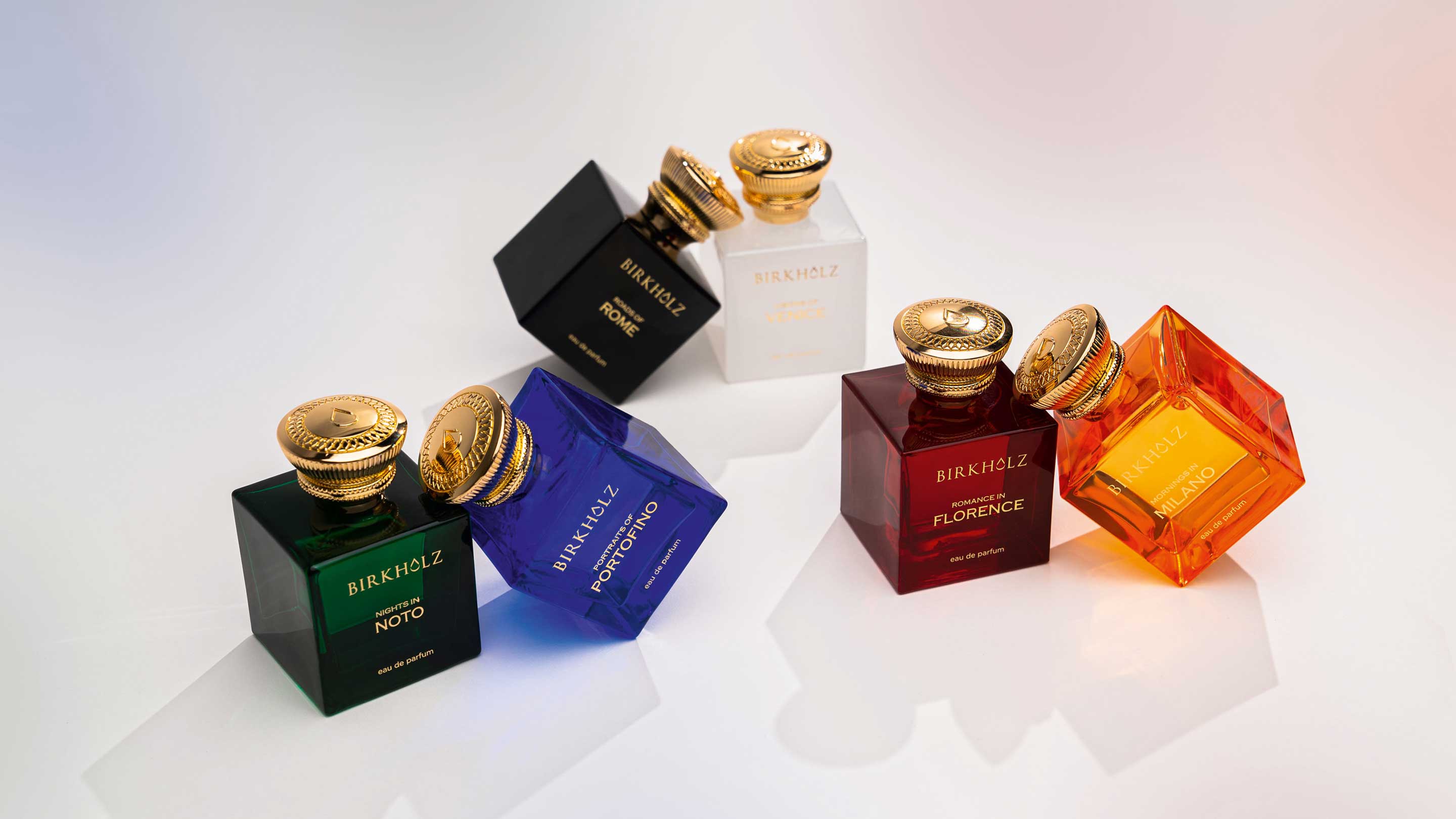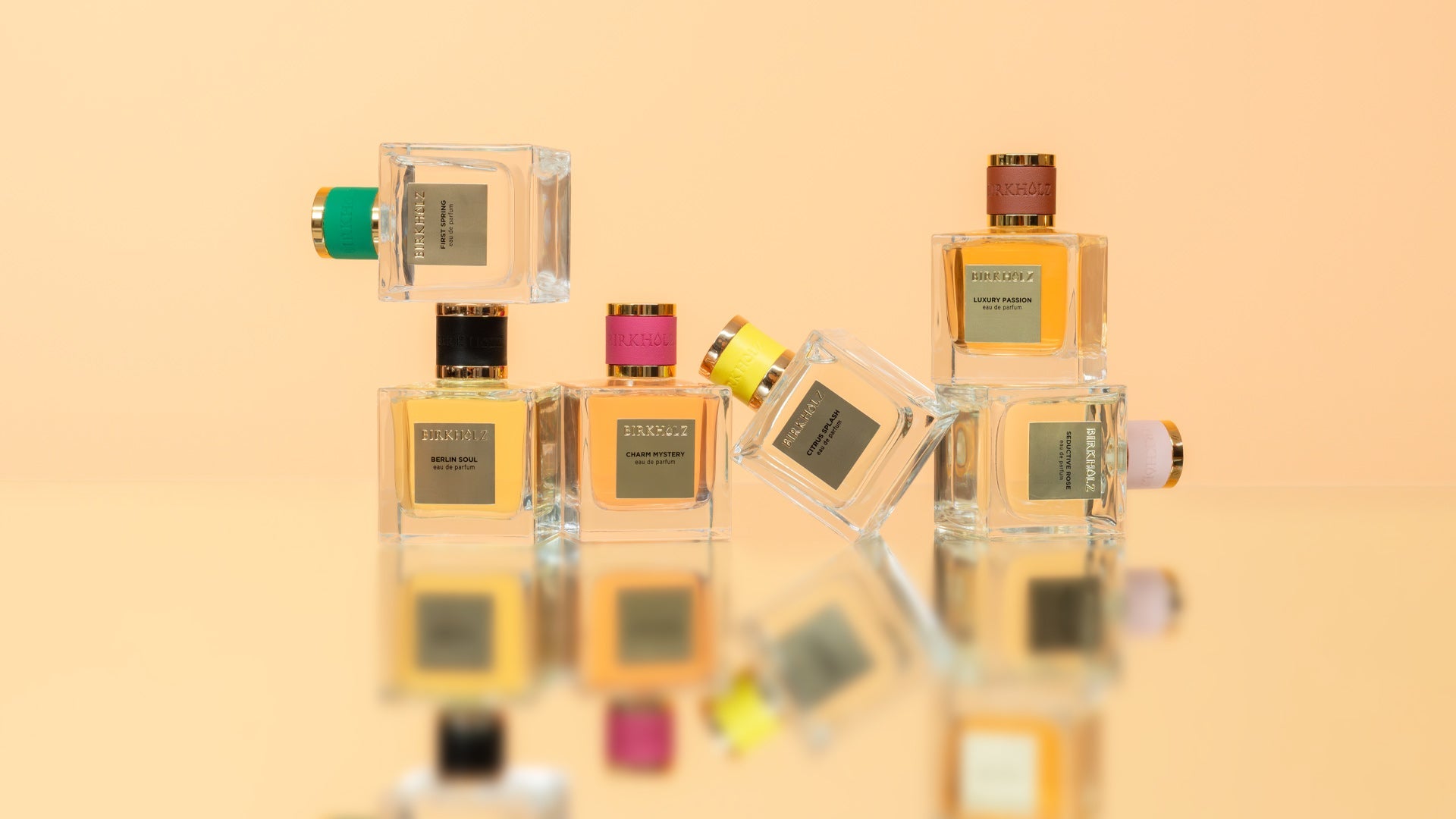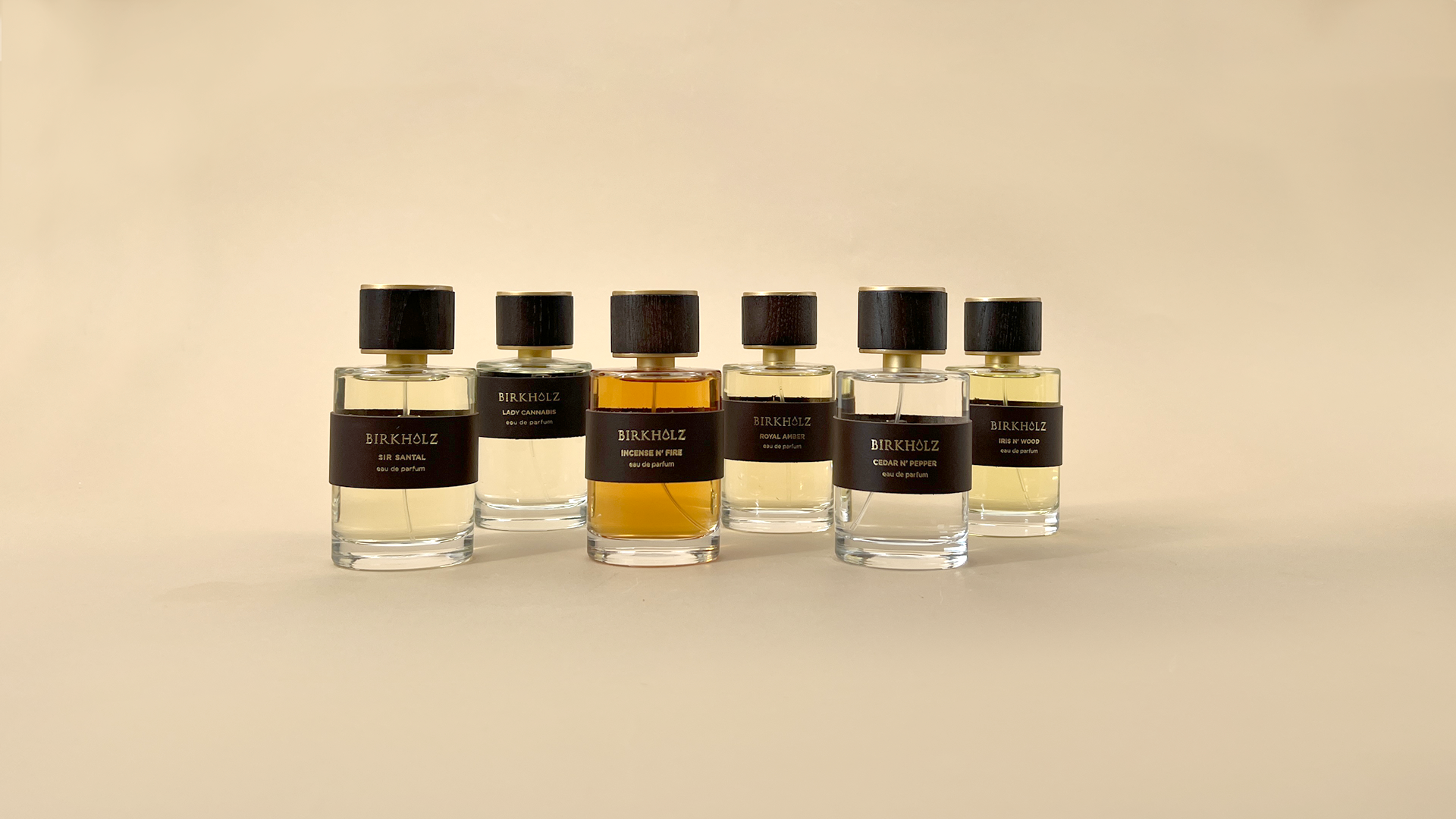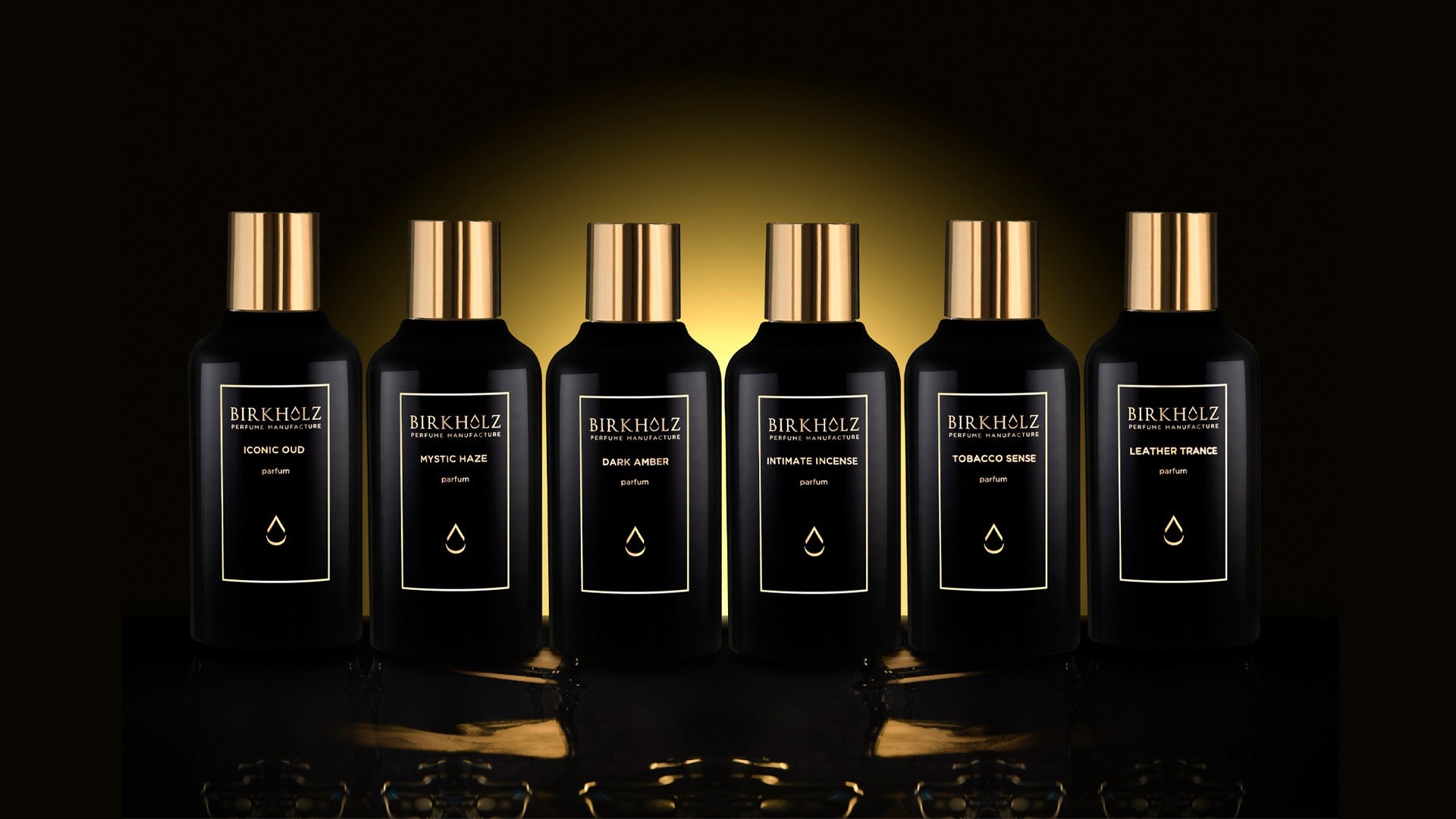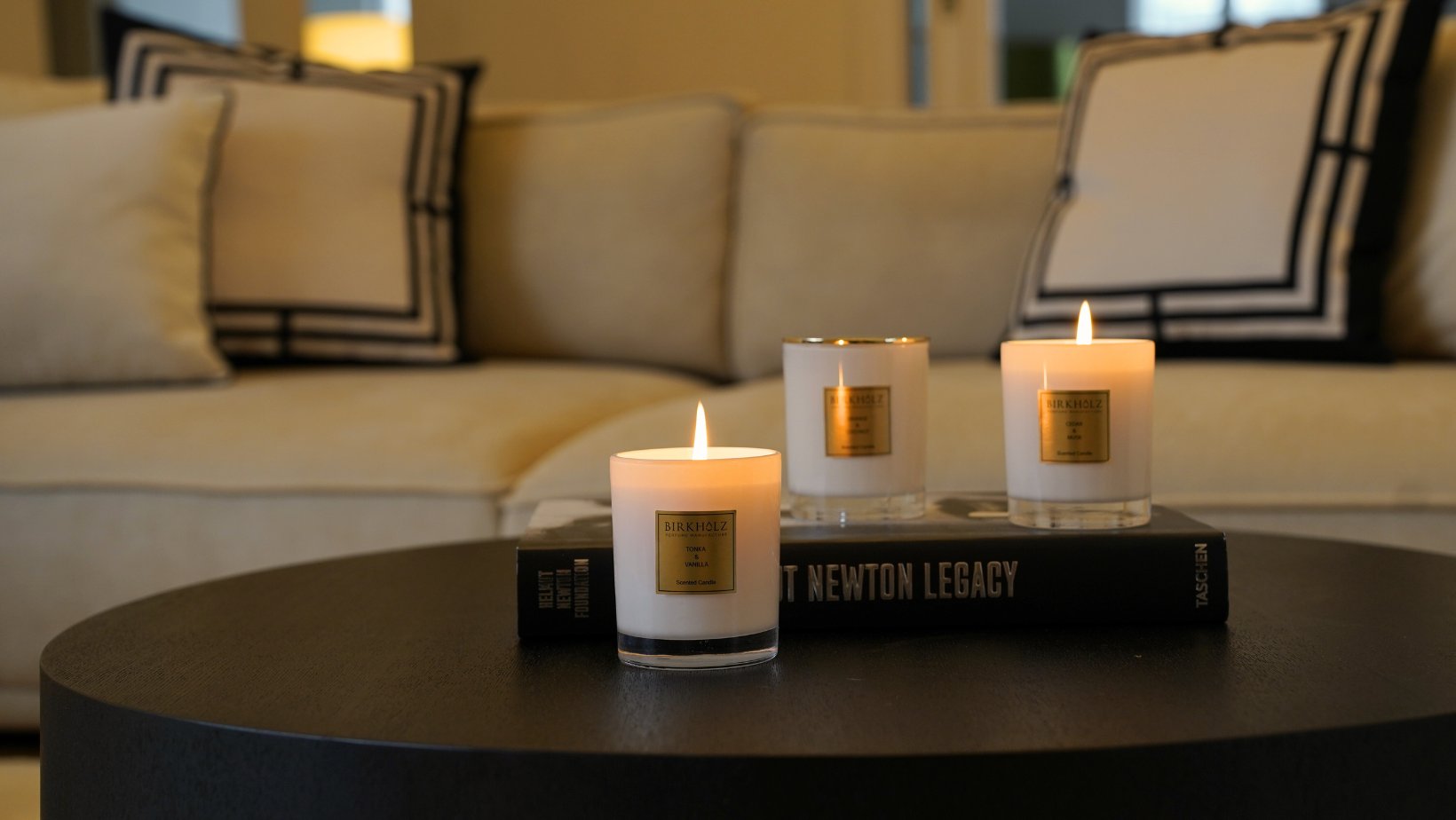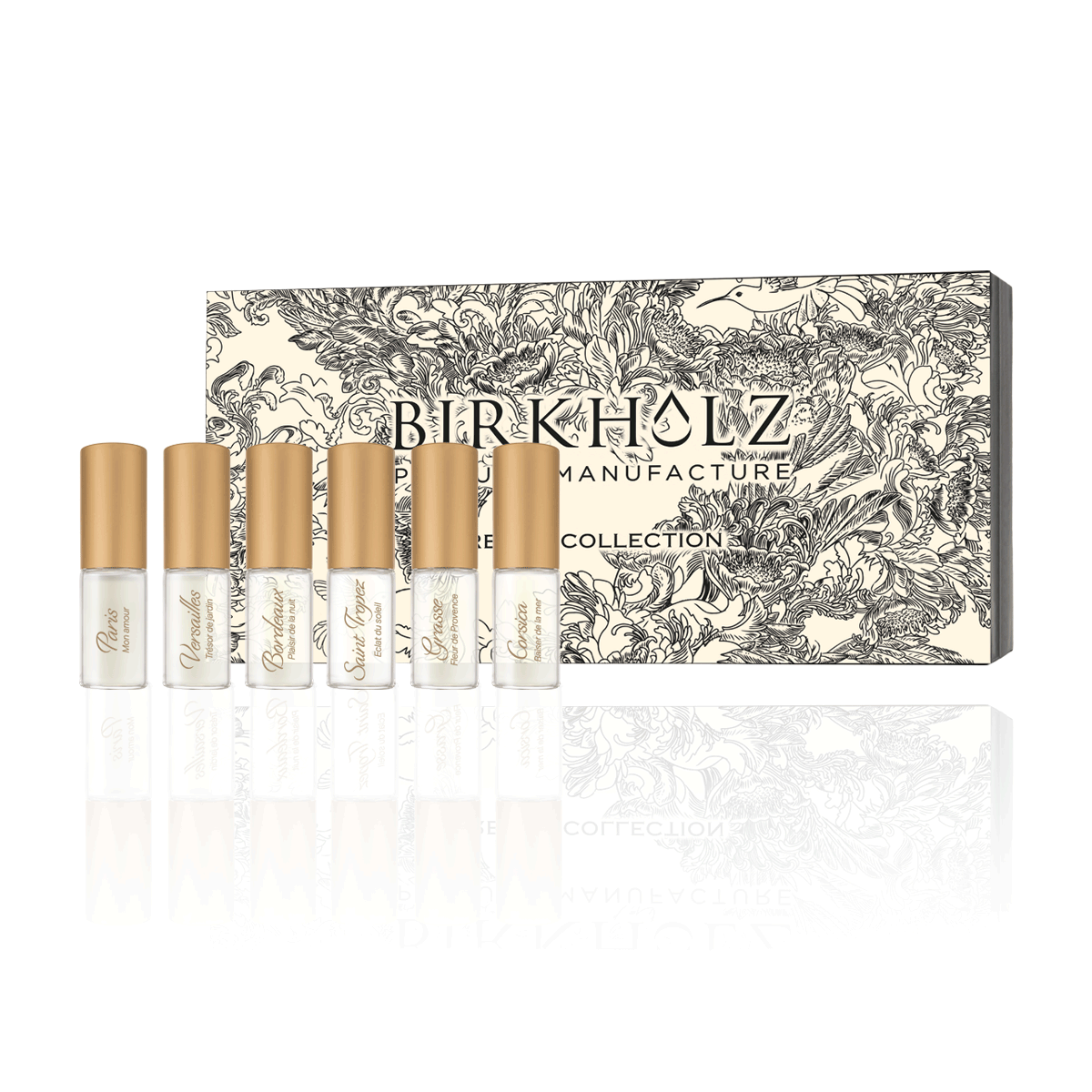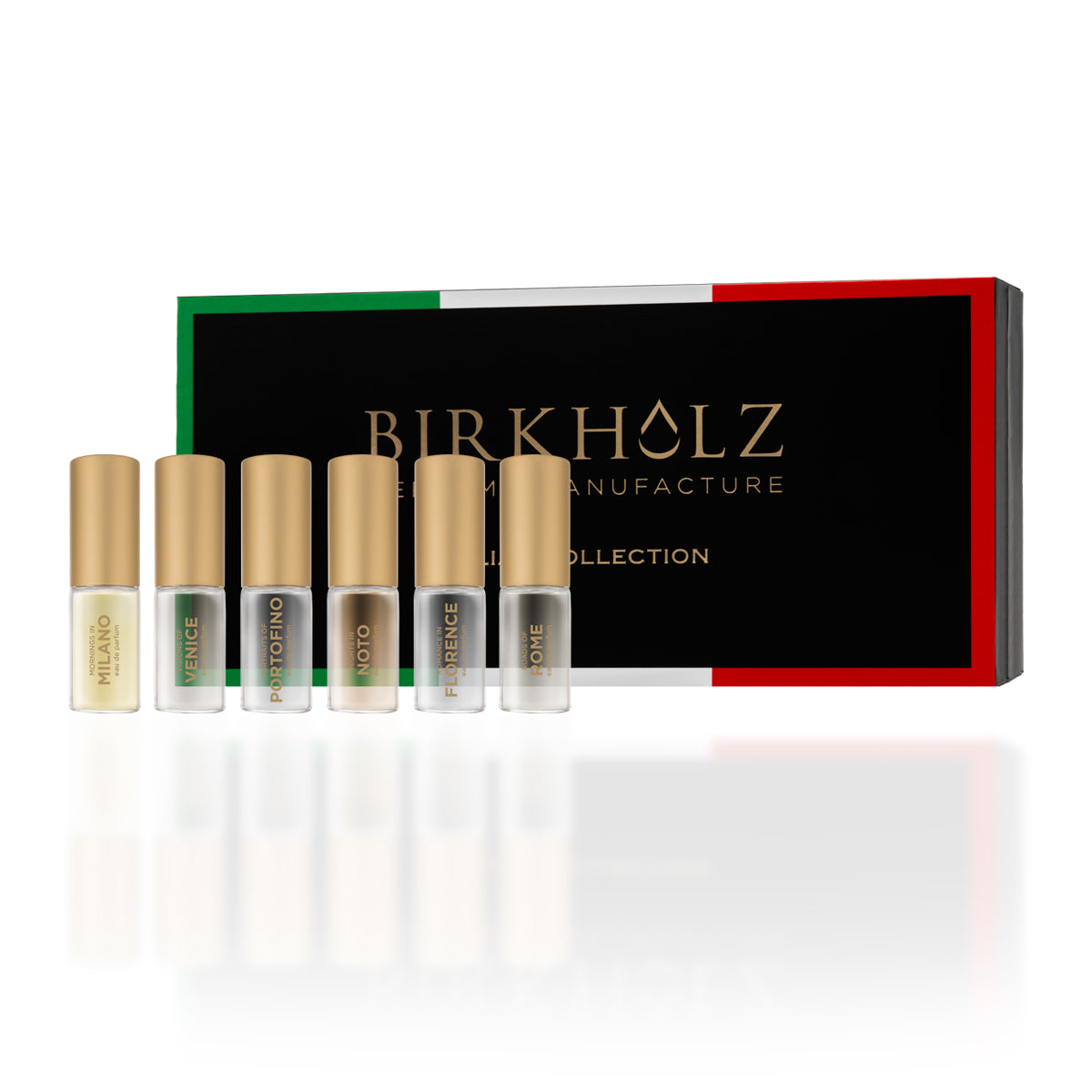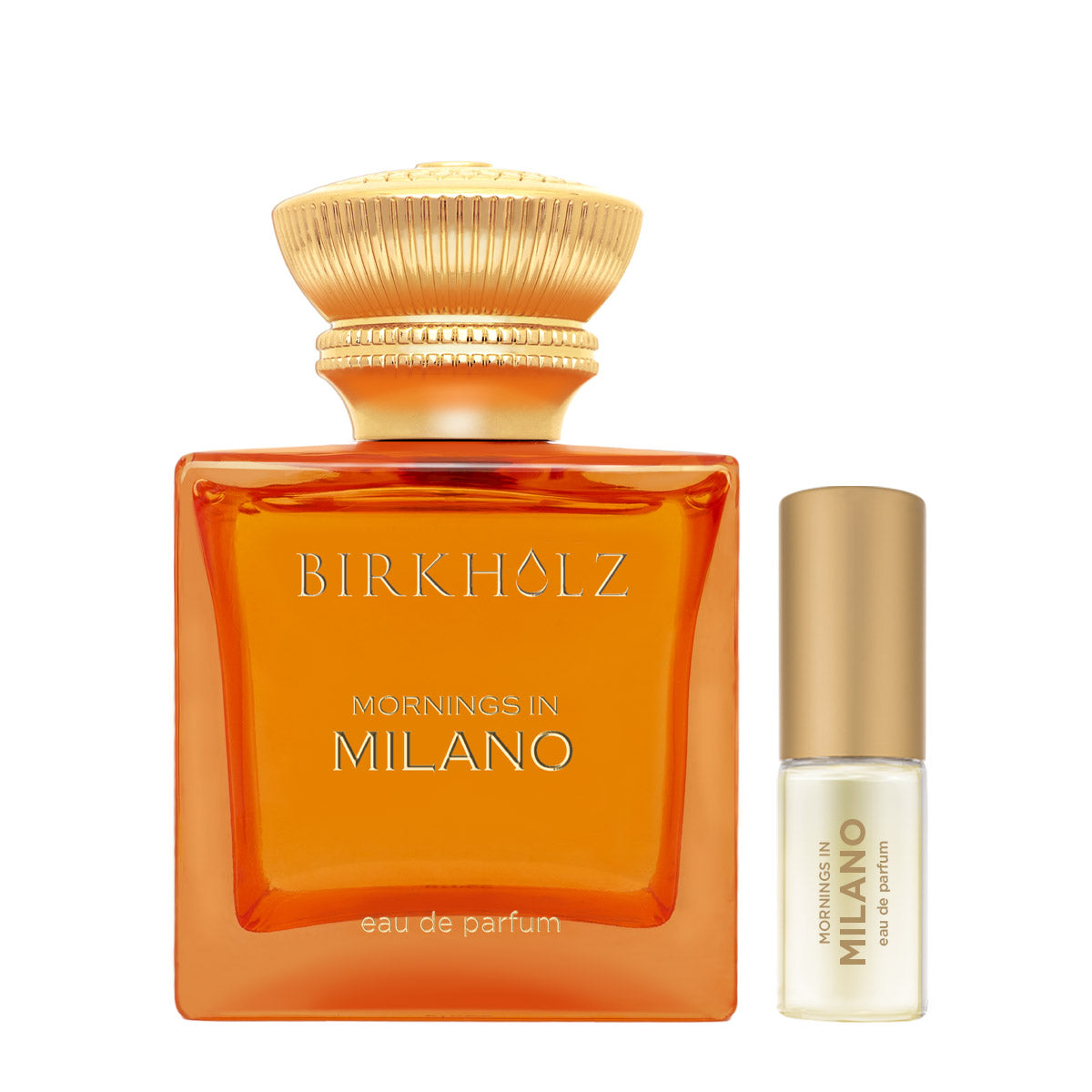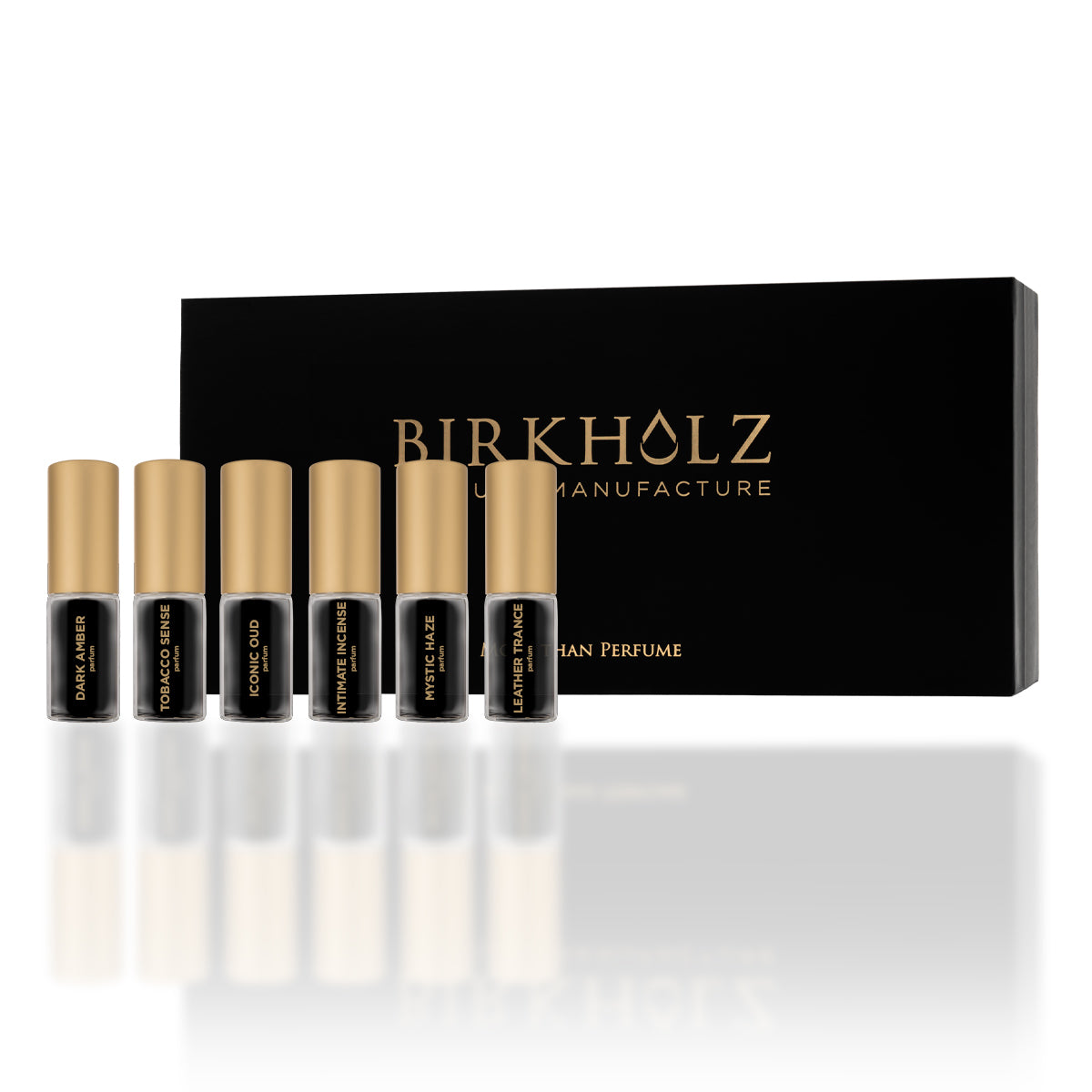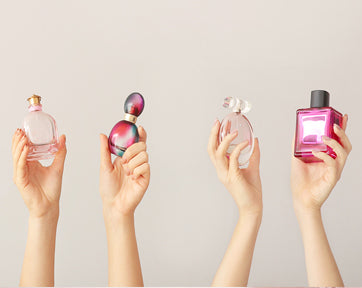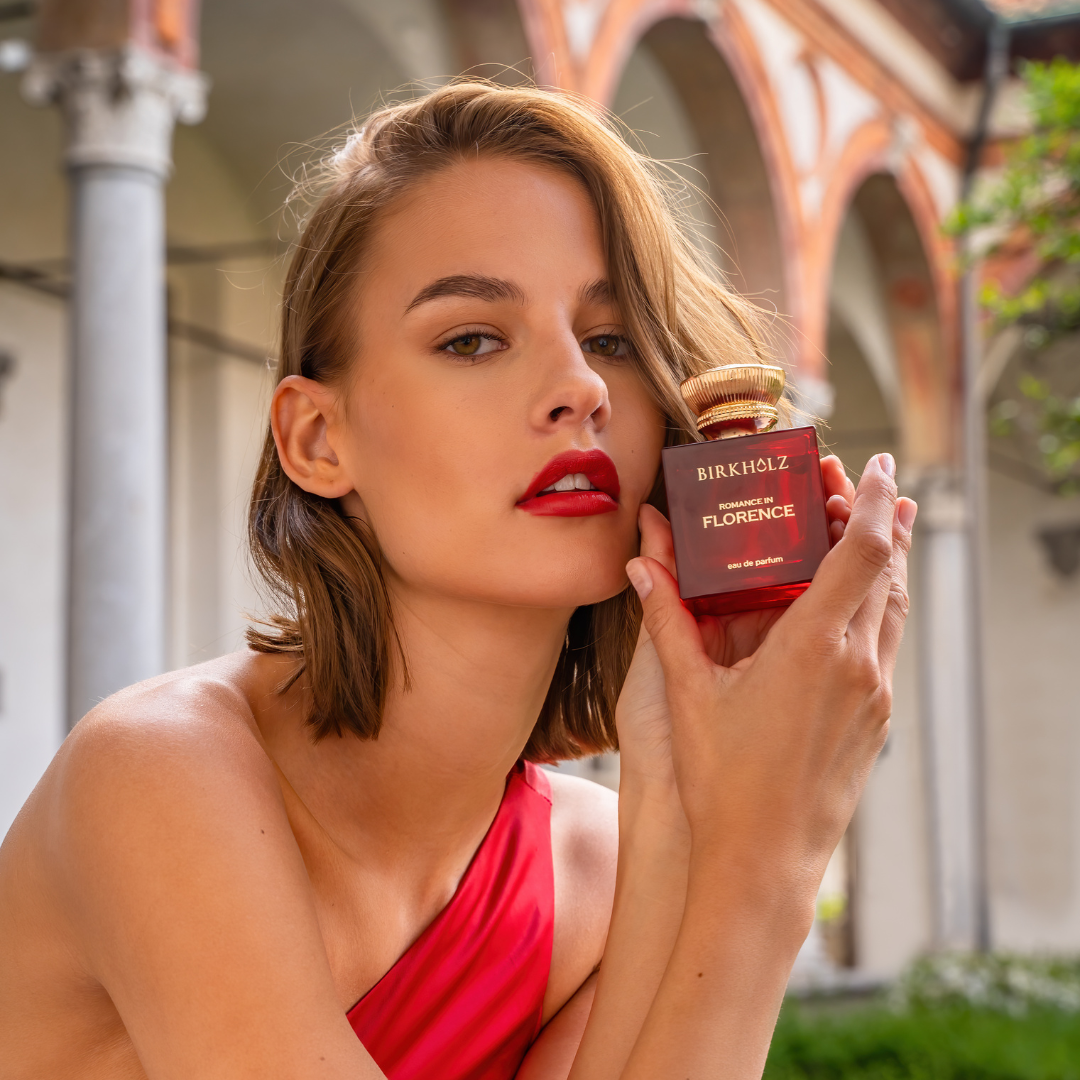Rich text
The world of fragrances differs not only in terms of
In principle, everyone knows that there are various differences between eau de parfum (EdP) and eau de toilette (EdT). However, many people do not know what these differences are in detail. So that you are aware of exactly how the two types of fragrances differ and can choose the right product accordingly, we present the exact differences between the two variants here.
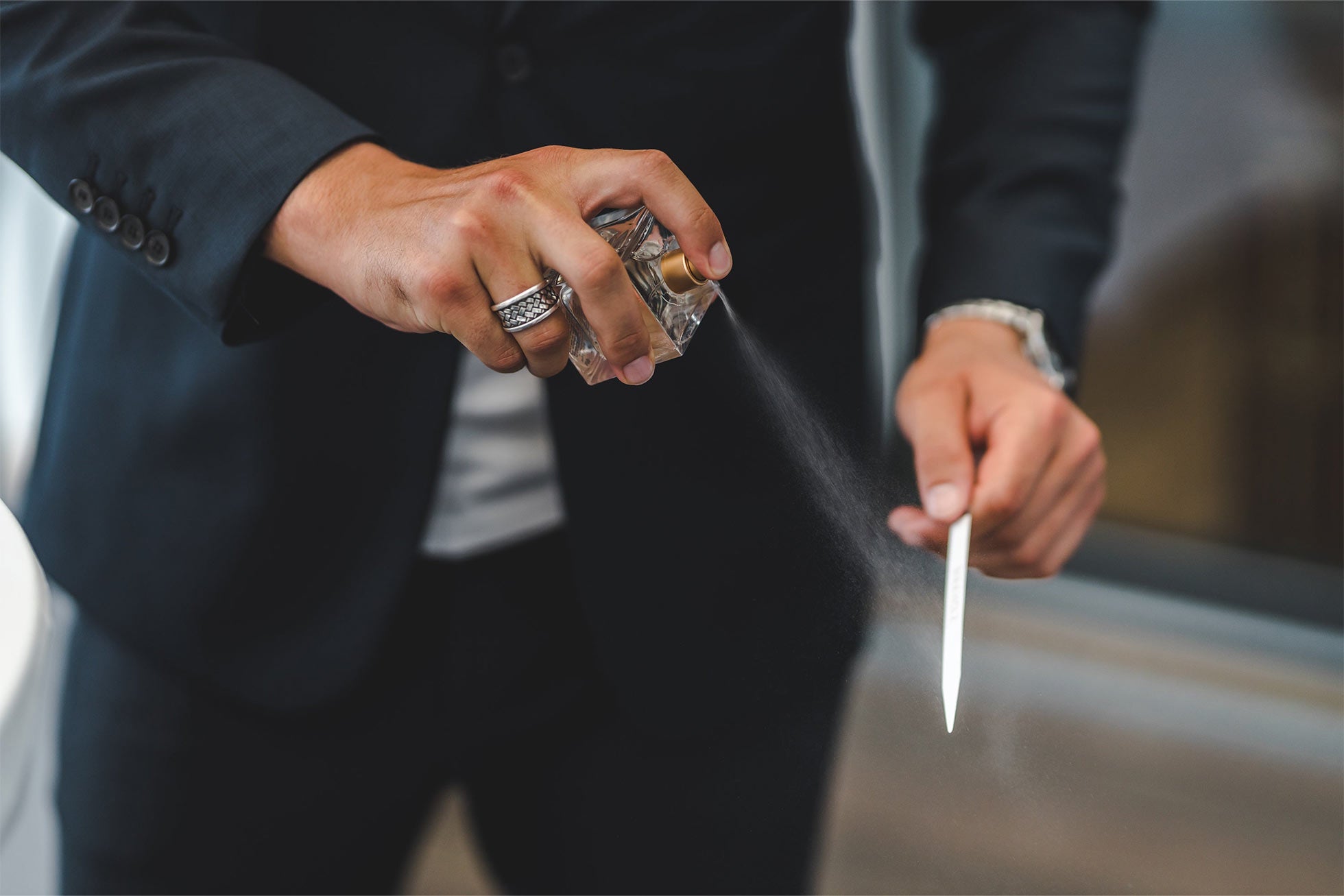
THE INGREDIENTS
Of course, there is not just one difference between eau de parfum and eau de toilette, but several. However, the biggest difference undoubtedly lies in the ingredients of the different perfume variations. The concentration of fragrance oil essence, which varies between perfumes, is particularly decisive. In general, eau de toilette has a fragrance oil content of around 4 to 8%, while the concentration of fragrance oil in eau de parfum is much higher at 10 to 18%.
Alcohol is used as a diluent in both variants, although there are also differences in concentration here. Due to the different ratio between high-quality fragrance oil and alcohol, there can also be quite large differences in the price of the different perfume variants. At the same time, the concentration also has an effect on the general durability of the fragrances. So if you are looking for a particularly long-lasting and high-quality fragrance, eau de parfum is the better choice.
In some cases, it is also possible to buy a fragrance as both an eau de toilette and an eau de parfum. This is the case with Chanel's BLEU DE CHANEL, for example, as the fragrance is available both as an eau de parfum, as a pure perfume and as an eau de toilette. Here too, the difference lies in the concentration of the respective fragrances. The perfume is the pure essence of the fragrance oils.
THE SHELF LIFE
The fragrance content affects both the intensity of the respective perfume and the durability of the fragrance. This refers not only to the general period of time over which the perfume can be stored, but also to the fragrance's durability on the skin. Here, too, the various types of perfume differ greatly in some cases.
As eau de parfum has a much higher concentration of fragrances, the corresponding fragrance generally lasts much longer than with other perfumes. This means you can usually enjoy the pleasant scent essences for up to 5 hours. How the fragrance develops over time has to do with the composition of the fragrance pyramid
In the case of eau de toilette, the shelf life is correspondingly shorter due to the lower fragrance concentration. On average, the fragrance lasts for around 2 to 3 hours. Also interesting: Eau de Cologne usually has an even lower fragrance oil content and therefore has an even shorter shelf life than Eau de Toilette. However, eau de solide has the lowest concentration, although it is rarely offered for sale.
The different levels of fragrance oil obviously also have an effect on the fragrance itself. A perfume with a higher proportion of fragrance oils also has a much stronger intensity. This not only means that it lasts much longer, but also that with a higher concentration, you generally need less fragrance water to achieve the same effect. For this reason, a few spritzes of an eau de parfum are usually enough to enjoy a long-lasting fragrance, whereas a larger amount of fragrance water is required for an eau de toilette, for example.
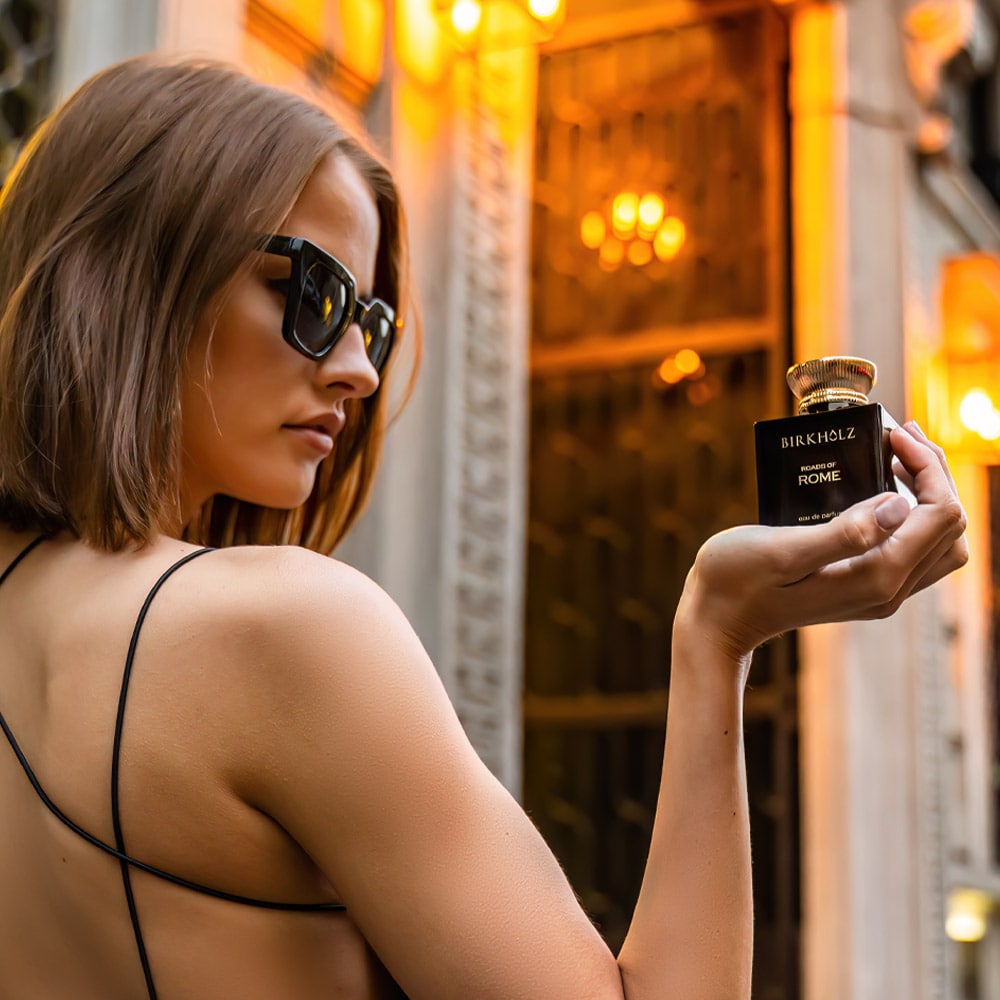
THE ADVANTAGES AND DISADVANTAGES OF EAU DE PARFUM AND EAU DE TOILETTE
If you look at the differences between eau de toilette and eau de parfum, you will probably quickly come to the conclusion that the latter has practically only advantages over the other fragrance variant. In reality, however, both variations offer their own advantages and disadvantages, which also have an impact on the decision as to which variation is right for you. To make this decision a little easier for you, we have summarized all the advantages and disadvantages for you at a glance.
At first glance, it may quickly appear that an eau de toilette is generally the worse choice compared to an eau de parfum. However, this is not necessarily the case, as an EdT perfume also has various advantages. Although it has a lower concentration of fragrances, it still offers an intense scent that can be smelled on the skin for around 2 to 3 hours.
The biggest advantage of this perfume is probably the price, however, as it is usually much lower thanks to the lower fragrance content. This makes the fragrances a good option for a lower budget. If a product is available in both versions, the EdT is also a good way to try out a fragrance. If you like the scent, you can then opt for the slightly more expensive eau de parfum. Here is an overview of all the advantages and disadvantages:
Advantages
- Fragrance lasts up to 2 to 3 hours
- Lower price
Disadvantages
- Lower fragrance content
- Lower durability than EdP
THE ADVANTAGES AND DISADVANTAGES OF EAU DE PARFUM
Based on the above-mentioned differences, some advantages can be quickly recognized, especially for the eau de parfum. With its particularly high fragrance concentration, this perfume offers a particularly long shelf life and a more intense scent than most other options. This also ensures that you usually need less fragrance water to achieve the desired scent.
The biggest disadvantage compared to other fragrances, however, is the price. Due to the higher proportion of fragrance oil and the associated manufacturing costs, you usually pay considerably more for a bottle than for an eau de toilette or even an eau de cologne. Eau de Pafums are therefore particularly suitable as gifts for women and men. So let's summarize once again:
The advantages:
- Higher proportion of fragrance oils
- More intense fragrance that can last up to 5 or more hours
- Longer lasting on the skin
- Mostly only a few spritzes needed
The disadvantages:
- The price is generally higher
At Birkholz, you will find a large selection of different eau de parfums to suit your individual taste. Thanks to the high quality of our fragrances, you can look forward to a particularly long-lasting scent and particularly intense olfactory essences. For example, discover our

